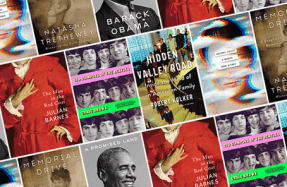Writing Rules That Were Made to Be Broken: Kill Your Darlings

Rule: You have to kill your darlings.
Now there’s a workshop rule I’d heard, internalized, and then parroted many times over—until I came across this revision advice from Elisa Gabbert (you can find the full quote here): “Keep your best line (or image or idea) and trash the rest . . . I guess the idea is that if you love something you can’t be objective about it. But I often find that I’m trying to make a poem work just so I can save the part I like best, and nothing but that part is really successful. Is a poem with no good parts better than a poem with only one good part that isn’t earned? No! Kill the crap I say and save your darling.”
Etgar Keret advises writers that “If someone gives you a piece of advice that sounds right and feels right, use it. If someone gives you a piece of advice that sounds right and feels wrong, don’t waste so much as a single second on it. It may be fine for someone else, but not for you.” It wasn’t until I came across Elisa’s revision advice that I realized how much kill your darlings had always been one of those rules that sounded right enough but always felt a little wrong.
Have I ever clung to narrative elements—a character, a subplot, a weird detail—for way too long, despite the urgings of others? Hell yeah. But I was not holding onto them because they were darlings, even though I might have told myself they were in the moment. Rather they were duds temporarily disguised as darlings, and once I realized I was holding onto these elements because I was scared or unsure or was being imaginatively lazy, I cut those duds and didn’t look back.
But every so often I do come across a true darling. It will be a jarring and ungainly presence on the page at first—what on earth are you doing here? I will ask every time I come across it, as will everyone else who reads a draft. And yet! Every time I come across the darling I don’t feel dullness and dread, as I do with the duds. Rather I feel the spark. Recently I’ve become narratively lovelorn for a marzipan lamb. Who can explain such things? Perhaps we can’t be objective about what we love, but is writing objectively the aim? For me, I do my best work when I’m writing from a place that is a little off-balance, a little deranged—when I’m writing towards what feels rawly and intuitively necessary, even if I don’t yet understand why.
I don’t think darlings come along that often (I get maybe one or two a year), but recognizing the presence of one means I am willing to re-order the universe of the story or novel to give it life, even if that means trashing the rest.
*
This essay originally appeared at Grub Street.






